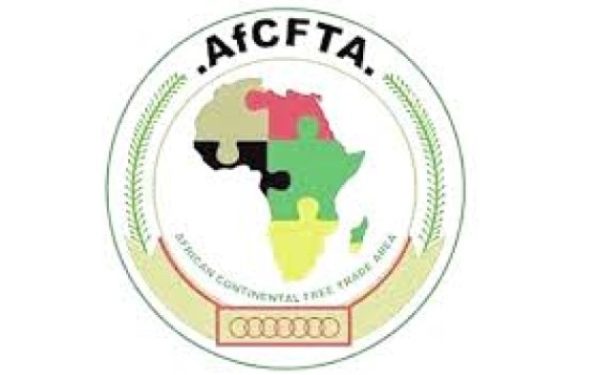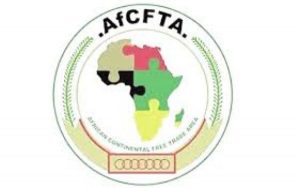The government is developing the local pharmaceutical industry as the new growth pole for the industrial transformation of the country.
It is also one of the industries under the country’s Africa Continental Free Trade Area (AfCFTA) policy framework.
In view of that, the government has embarked on a number of initiatives to create the enabling environment for the attraction of the needed investment into the local pharmaceutical industry.
A deputy Minister of Trade and Industry, Michael Okyere Baafi, said that in a speech read on his behalf by the Team Leader, Strategic Anchor Industries, Kwesi Ofori Antwi, at the11th edition of the CalBank and the Ghana National Chamber of Pharmacy (GNCoP) Leadership Conversation Series held in Accra on April 12.
The forum brought together captains of industries, pharmacists, policy makers among others to discuss the growth of the pharmaceutical industry in the post COVID-19 era.
It was on the theme: ” The African Continental Free Trade Area (AfCFTA) and the Post COVID-19 Era, the Growth of the Pharmaceutical Sector of Ghana.
Government support
Mr Baafi in his address said the government, under some of its policies such as the Obaatanpa Cares Programme, had put in place post COVID-19 measures of upgrading the pharmaceutical companies in the country to achieve the World Health Organisation (WHO) goods manufacturing practices standard and technical assistance to enhance operational efficiency of selected tier-two pharmaceutical companies.
He disclosed that the government was also putting finishing touches to the drugs policy and incentives framework for the pharmaceutical industry and establish an active pharmaceutical ingredients facility.
” The government with support from the private sector is gradually taking giant steps towards having a world-class pharmaceutical manufacturing hub in the sub-region capable of or locally producing and supplying high quality, affordable, safe and efficacious medicines for the domestic and export markets, including taking advantage of the opportunities presented under the AfCFTA “, he said.
Mr Baafi stated that the ministry, together with the relevant state institutions, would continue to promote cooperation with the pharmaceutical industry for an efficient regulatory regime to turn Ghana into a vibrant pharmaceutical research , development and production hub in the sub-region.
Opportunities
The Managing Director of CalBank , Philip Owiredu, who opened the conversation, said considering the market potential of the pharmaceutical industry of the country and the lessons learnt from the COVID-19 era, the bank decided to partner with the GNCoP to explore the opportunities that existed within the sector and how best Ghana could take advantage of the many benefits that the AfCFTA presented.
He added that health being one of the key Sustainable Development Goals (SDGs), one of CalBank’s key corporate social investment pillars, was to support in building health infrastructure and delivery system in the country and the continent at large.
Mr Owiredu noted that following the lessons learnt from the COVID-19 era, there was the need to invest in the country’s health industry with emphasis on the pharmaceutical sector.
“First, building Africa’s quality healthcare infrastructure, second, building Africa’s pharmaceutical industry and third, building Africa’s vaccine manufacturing capacity,” he said.
He stated that for it to be possible, Africa needed between US$ 600 million and US$1.3 billion to meet its goal of attaining 60 per cent vaccine production by 2040.
He expressed the commitment of CalBank towards the realisation of these goals by providing dedicated support to the pharmaceutical industry to reap the benefits.
The Secretary General of AfCFTA, Wamkele Mene, in a speech read on his behalf by his Chief Technical Advisor, Prudence Sebahizi, stated that the pharmaceutical industry in Ghana had become critical due to COVID-19 as the African continent struggled with limited access to vaccines.
He added that the situation highlighted the vulnerability of the African continent due to its reliance on importation of most vaccines and medicines, saying, Africa imported close to 94 per cent of its pharmaceutical and medicinal needs from outside the continent.
That, he said, could cost the continent US$60 billion and, therefore, called for more investment in the pharmaceutical sector .
With the huge opportunities in the pharmaceutical industry, he said Ghana, and for that matter the whole of the Africa continent, stood to benefit from the opportunities the AfCFTA presented .







